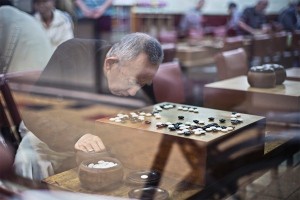I read that Apple employs 800 engineers who work specifically on camera technology. As we know, these technologies apply more and more computing power to the act of taking a photograph. They analyze everything in the scene — they detect faces, judge exposure based on a AI algo’s, etc, etc...
At some point, this tech will expose a very high DR and automatically lift shadows based on very advanced scene analysis. They might even crop the photo, shift its colors, and do everything short of composing it for you... which they may somewhat do as well.
I just wonder if we will reach a point where there’s no joy left in being a photographer and creating images, because point and shoot will have so much of its own intelligence.
At some point, this tech will expose a very high DR and automatically lift shadows based on very advanced scene analysis. They might even crop the photo, shift its colors, and do everything short of composing it for you... which they may somewhat do as well.
I just wonder if we will reach a point where there’s no joy left in being a photographer and creating images, because point and shoot will have so much of its own intelligence.




